- Home
- Blake Banner
Blood in Babylon Page 3
Blood in Babylon Read online
Page 3
She was already shaking her head and laughing. “Oh, I know you’re cops, darling!” She laughed and flapped her hand at me. “You got that written all over you! But tell me what I can do to help you.”
I smiled. “We’d like to see Dr. Epstein.”
She glanced at her watch. “He’s got his nine-thirty in twenty minutes.” She eyed me with a hint of mischief. “Procrastination, but he is always late!” She screamed with laughter and flapped her hand. I heard Dehan snort behind me. She picked up the internal phone and pressed a button, still chuckling. “Procrastination… always late. I swear it’s true… Dr. Epstein. I got two beautiful detectives from the NYPD here to see you…” She paused, watching us and nodding, then said, “Twenty minutes, but you know he’s always late… OK.”
She pointed to a mahogany door across the room and said, “That door. He’s noisy, but he’s a good man.”
“Thanks for the head’s up.”
She winked at Dehan and I went and knocked on the door.
“Come!”
I opened the door and we stepped in.
Dr. Epstein was on his feet, rising from his large, oak desk, gesturing at us with a huge hand. “I told her to send you in. Why do you need to knock? If she tells you to come in, it’s like I told you to come in! Sit down. What do you want?”
He was a big man, though not tall. He had a white shirt with thin brown stripes and a burgundy tie. His hands were large and hairy. He had a large, gold wedding band and the nails of his right hand were long. Those on his left were short. He used gold cufflinks.
The office was comfortable, more like your favorite uncle’s study than a place of work. It was elegantly shabby, well used and smelled of pipe tobacco. The book cases, the oak desk and the sideboard were all genuine antiques, and the books on the shelves were an eclectic mix of leather bound tomes and well-thumbed paperbacks, filed according to nearest available empty space system.
I assimilated this in the time it took him to swing his arm from pointing to the door to pointing to the ancient leather armchairs across from his desk.
“Sit down,” he said again. “You’ll be more comfortable sitting down than talking on your feet.” He dropped into his own, huge leather chair and we sat. “When you stand too long, all the blood drains from your brain to your feet, makes it harder to think. That’s a joke, but it’s also true. So what do you want?”
I let him finish, smiled and waited in case he was going to start again. After he didn’t, I showed him my badge and said, “You were Aloysius Chester’s psychiatrist, back in 2007, when he was murdered?”
You read about people’s faces darkening. Epstein’s actually did. He frowned and his tan seemed to take on a deeper hue.
“I was. I saw him the very day they say he was killed, in fact. It was his birthday…” He waved his hand vaguely toward reception. “We did a little thing for him.” His eyes shifted from Dehan to me. He looked like he wasn’t sure whether to be mad or not. “He liked the attention, the affection. It made his load a little lighter.” His face darkened further, into a scowl. “He was a kind, loving person trapped in a damaged body, and a damaged brain.”
I drew breath to ask my next question, but he barked suddenly at Dehan, “I hope you’re not one of those people who spout trite little Facebook wisdom bites, like ‘everything happens for a reason’!”
I saw her repress a smile and raise an eyebrow. “Excuse me?”
He waved a dismissive hand at her. “A pet beef of mine. You know them? Those people who greet every damned tragedy in life with that trite little phrase, ‘Everything happens for a reason.’” He looked at me, hunched his shoulders and narrowed his eyes into incredulity. “What?”
I was about to tell him I hadn’t spoken, but he said it again. “What? Excuse me? I mean, what does it mean? Everything happens for a reason! Yeah, your husband got killed and the reason was, he stepped in front of a goddamn car! Children in developing countries die of malnutrition. The reason is human beings are sick and corrupt! Six million Jews were exterminated in German death camps. The reason was that the Germans elected Hitler to power! These are the reasons bad things happen, not because of some goddamned benign, all-knowing Universe!”
Dehan smiled. “We’re cops, Dr. Epstein, not philosophers. We just want to ask you…”
“It’s like those people—I want to shoot them—somebody says…” He sat forward and rearranged his ass. “Somebody says, ‘Hey, did you hear? John’s got terminal cancer.’ And some asshole always says, ‘Oh my God! His poor wife!’” His face collapsed into an exaggerated gape. He showed it to Dehan, then to me. “Excuse me? What? No! John has cancer, not his goddamn wife! Poor John! Am I right? Am I right or am I wrong about that? I mean, it’s John who has cancer, right? So poor John!” He flopped back in his chair. “I can’t stand that. Compassion is for the person who is dying, right?”
Dehan tried again. “Dr. Epstein, we really just wanted to…”
“Dehan? You’re Jewish, right? I can see it in your eyes. You’re always asking questions that can never be answered. We don’t have a cross, right? We’re Jews. But if we had one, that would be it. The eternal questions. Godda love the stereotypes.”
“Dr. Epstein?”
He turned to face me.
“We are taking another look at Al’s case. We have the full report, obviously…”
“Obviously.”
“But it would be really helpful…”
“You wanna hear it from the horse’s mouth. Of course you do. What do you wanna know? What happened that last day? How he looked? Did he seem worried about anything? Preoccupied…? Who’d know, if not his shrink?”
I sat back in my chair. “Yes, all of that, and anything else you can think of.”
He dilated his nostrils and took a long, deep, noisy breath.
“What can I think of…?” His eyes became abstracted. “He was a beautiful person. Kind, humane, compassionate.” His eyes locked onto mine for a second. “Brilliantly intelligent. Highly, highly intelligent. A seeker for truth. But…” He tossed his right hand, like he was throwing away something that had once had promise, but had since been found wanting. “Like so many young people of his generation, he thought the way to wisdom was to burn your candle at both ends.” He paused and smiled at Dehan, studying her face. “My candle burns at both ends;” he quoted, “It will not last the night; but ah, my foes, and oh my friends—it gives a lovely light.”
I sighed loudly and made no effort to hide it. “If we could get down to concrete…”
“Facts! It is a fact that Aloysius Chester was a brilliant student. Wellington College prep school, in England, Marymount High School, New York, Harvard Medical School. He had a glittering career all lined up at the top of his profession as a heart surgeon. But unlike his family, the man had a heart. He had a soul! He cared and asked those questions…” He eyed Dehan. “He wasn’t a Jew, but we haven’t got the monopoly on searching questions, right?”
“Right.”
I asked, “What are those questions he kept asking?”
“Why? Who? How? He asked how a lot, but mainly, why?”
I sighed again. “Dr. Epstein, we really haven’t got time…”
“You think I’m being facetious, but I’m not. He really did ask those questions. And it was the asking of those questions that shaped his life. Now, he was twenty years old when he was at Harvard. I’m talking about the late sixties. And we all know what was going on—and what was going down—at every campus in the U.S.A. during the late sixties. And there…” He gestured with his open hand at the middle of the floor. “Right there, was Tim Leary telling us all it was OK! Am I right?”
“So you’re telling us that…”
“And big, powerful brains like William Burroughs, Allen Ginsberg—you know?—telling us this is good! This is spiritual evolution. And these were no intellectual slouches! Not like Jack Kerouac, who was, if you will forgive me, intellectually lazy at best. So there we were
, at the dawn of a new age, being offered the fruit of the tree of knowledge. I was a bit younger than him. He was there right at the start, and who could blame him?”
Dehan said, “For being there at the start?” And frowned.
“No, for experimenting with LSD and mind-altering drugs. He was pretty wild, unafraid. And, you know, at that time, we were all reading Carlos Castaneda, as well as Ginsberg and Leary and the Beatles. Everywhere you turned, there was this message, ‘get high! Turn on! Blow your mind…’”
He went quiet, staring at nothing, seeing his memories.
“I met him once, you know that? Castaneda. Interesting guy, mild mannered, polite, very academic. It was all true, what he wrote about. He told me.”
“Al…?”
“Yeah, so he dropped out of college, went to Mexico, met a shaman, just like Castaneda. He did the whole peyote mescalito thing. His family were horrified. They disowned him. He didn’t care! He didn’t give a good goddamn. He was on a mission, brother!”
He threw his head back and roared out laughing, intoning in a booming voice, “He was on a mission, brother!” Then he subsided into chuckles. “A mission to find the Truth, with a capital ‘T’. From Mexico, he went to Brazil, in search of a shaman who could teach him to use ayahuasca.” He sighed noisily through hairy nostrils and shook his head. “It wasn’t enough. He never found the truth. The Truth is never out there, is it? So, he came back, deeply disillusioned with Latin America, believing now that we in the West were closer to the answer. This was Our Time, he thought. We were searching, in our collective unconscious, for the ultimate illumination. And for this reason, we had created LSD. He used it immoderately, recklessly, and it drove him into a doddering, ineffectual, infantile psychosis. He was made stupid by his own, wild search for truth.”
I leaned forward and raised a hand. “Let me just take this one step at a time, please, Dr. Epstein. You are telling me that Al’s schizophrenia was caused by his abuse of hallucinogenic drugs?”
“I thought I had made that clear.”
“And that he, Al, came from a privileged background…”
“I was also under the impression that I had made that clear.”
I struggled for a moment, trying to see the implications of this new information. Dehan scratched her throat with her index finger, narrowing her eyes.
“You said his family disowned him, and please, don’t say you’d made that clear.”
“Oh yes, the Chesters are one of the great families of New York. They are so privileged that nobody has heard of them. Anonymity is the true mark of class …”
I smiled. “Like the British royal family.”
“Exactly, vulgar German upstarts. The Chesters were among the first settlers in New York, long before the war of independence. Since then, they have produced a string of eminent medical practitioners, particularly surgeons. Every generation has produced at least one eminence. It was widely thought that Aloysius would be that eminence in this generation. But his soul burned too bright.”
There was an edge of impatience to Dehan’s voice when she said, “So they disowned him.”
He shook his head. “Not at first. His mother had died when he was young. I have no doubt this affected his attitude to life—and women. She was, perhaps, the answer he was forever seeking, but was doomed never to find. Be that as it may, he was raised most of his life either at boarding schools or, on the rare occasions that he was at home, by nannies. He had very little contact with his father. But while he was in Brazil, his father died. He did not return for the funeral, but he did return shortly after that for some kind of Harvard reunion. His brothers and his sister met with him and gave him an ultimatum: toe the line and take up your position as head of the family, or we will disown you.”
I couldn’t help giving a small laugh. “What does that mean? What would be the consequences of being disowned?”
He viewed me a moment, then nodded a few times. “You mock, and perhaps in some cases you would be right to. To be disowned by the Chester siblings would mean social ostracism. His clan, his class, his social peers, would all disown him. They would all turn their backs on him. He would be cast adrift and his old school tie would be of no use to him whatsoever. That can—and did, for Aloysius—have very serious consequences, professionally and financially. The well of privilege suddenly dried up!”
I nodded, aware that he was telling me something that was important, though I wasn’t exactly sure why. “But this case was different in some way?”
“Oh yes, very. Because when Aloysius got back from Brazil, it soon became apparent that he had suffered serious neurological damage. So not only did they disown him, but then they had him diagnosed as suffering from paranoid schizophrenia. He effectively lost control of all his wealth overnight. His shares in the family company were put in trust…”
I frowned. “In trust?”
He snorted. “In trust…! Meaning that his brothers and his sister administered his shares in the company, and the proceeds from those shares, and I was appointed by the court to be his guardian. It was up to me to oversee his care, watch over him if you like, and also to make sure his siblings did not abuse the trust too outrageously.”
Dehan asked, “What is the family company?”
“Their father, Isembard Chester, invented a small, visually insignificant, yet medically essential valve which is used in every cardiology department in the world. He founded the company, Chester Cardio-Valves, and now they all live like kings on the proceeds. They were always rich, now they became insanely rich. And Aloysius had inherited twenty-five percent of the shares in that company. When he was diagnosed as suffering from paranoid schizophrenia, the siblings requested a court order to enable them to administer his share of the company. Then they disowned him.”
I said, “So he lived on an allowance from the family?”
He shook his head. “The company paid him a director’s salary every year. It was far less than the other three received, because they claimed he had no input into the firm. His shares were worth millions—a king’s ransom! But he was not allowed access to it because they claimed he was a danger to himself—a statement you could hardly argue with.”
“And once he died?”
He shrugged. “That was where my involvement ended. Everything reverted back to the estate. He had no heirs, nor could he make out a will, because he was not of sound mind. So his brothers and his sister got everything.”
Dehan’s eyebrows shot up, but she didn’t say anything. I stared at Epstein a moment. “You talk about him and his family as though you knew them…”
He spread his hands, flopped his head on one side. “He was in my care for a long time. I liked him. He was a couple of years ahead of me at Harvard. He didn’t know me, but I saw him around and I admired him. I admired his relentless search! It was fortuitous that later in life he would be put into my care.”
His internal phone rang and he snatched it up. “Yes!”
He listened a moment, then hung up without saying anything. To me, he said, “My patient is here. Joy might be able to tell you more. She was more directly involved with Al on a day to day basis. Talk to her.”
I pointed toward reception. “Is that Joy?”
“Not anymore. She opened up and let you in this morning, bless her. But now she’s at the church. Mondays she volunteers to combat the encroaching darkness of Babylon. Right now you’ll see her daughter, Mary. Dim, IQ of about ninety-eight point five, but willing. She’ll tell you how to get to the church. Now, go, please.”
FOUR
Mary was pretty and smiled as easily as her mother. Her skin was a little paler than Joy’s, but she had her mother’s big eyes and generous lips. I put her in her early twenties and figured that Epstein’s assessment of her was probably not a fair one. I pegged her as more submissive than dim.
“You want to see Mom? She’s at the church. Monday is always a busy day there. They have the soup kitchen, legal advice, medical advice, a
nd any other charity they may be running at the time!” She laughed like she’d said something funny and rolled her eyes. “Mom’s been going for years, so they can’t do without her. Indispensable Joy! That’s what the pastor calls her.”
Dehan gave a sweet smile. “That’s nice. Where is the church, Mary?”
“OK.” She put her hands together like she was praying and gave a little bob on her knees. “You’re going to turn right out of the building and at the end of Benedict Avenue, you’re going to make a left onto Metropolitan Avenue.” Here she paused to give a little giggle and another bob. “Go down Metropolitan Avenue and cross the circus, but kind of turn right?” She made a contorted gesture with her hand to indicate a car turning right. “Onto White Plaines Road? And it’s like a block down, on the corner with Gleason. It’s called the Church of the Sacred Apocalypse.” She grinned sheepishly at Dehan. “Apocalypse means revelation. That’s because the Book of Revelation is all about the Apocalypse.”
I patted her shoulder in a fatherly fashion. “Thank you, Mary, you have been extremely helpful. You have a peaceful day.”
Her cheeks flushed pink and she gave me a breathless, “Thank you!”
We stepped out of Epstein’s practice and sought the elevators. Once we had stepped into the car and started to descend, Dehan looked at me with narrowed eyes and shook her head. “Is it just me or is everybody insane today?”
“I can’t remember who said it, but somebody said that normality was just a psychosis we all agree upon. Dr. Epstein struck me as a very sane man, actually.”
She eyed me a moment. “He did, huh?”
I nodded. “Mh-hm.”
“Well, I gotta tell you buddy, I don’t know if that says more about him or about you.”
The doors slid open and we crossed the seedy old lobby out into the fresh, early summer morning. I unlocked the Jag, we climbed into the warm leather and walnut interior and slammed the doors. We both sat in silence for a while, staring through the windshield.
Dehan spoke first: “So we have another motive. A considerably more powerful one than a semi-mythical box of cash.”

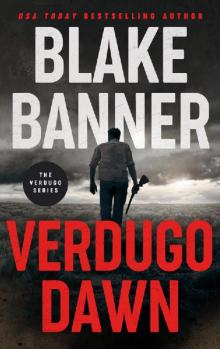 Verdugo Dawn
Verdugo Dawn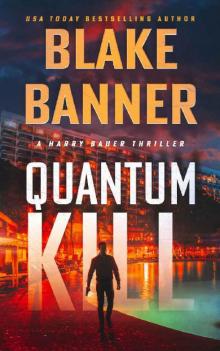 Quantum Kill (Cobra Book 4)
Quantum Kill (Cobra Book 4)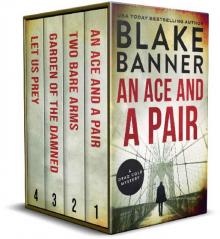 Dead Cold Mysteries Box Set #1: Books 1-4 (A Dead Cold Box Set)
Dead Cold Mysteries Box Set #1: Books 1-4 (A Dead Cold Box Set)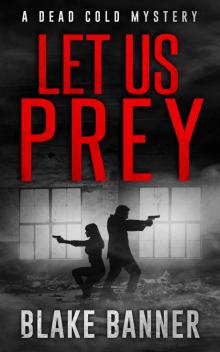 Let Us Prey
Let Us Prey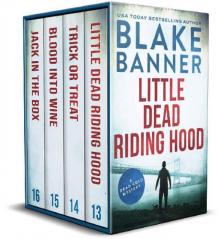 Dead Cold Mysteries Box Set #4: Books 13-16 (A Dead Cold Box Set)
Dead Cold Mysteries Box Set #4: Books 13-16 (A Dead Cold Box Set)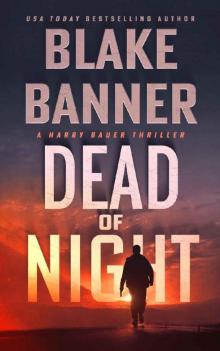 Dead of Night
Dead of Night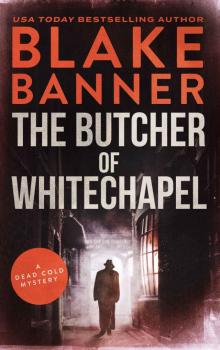 The Butcher of Whitechapel: Dead Cold Mystery 12
The Butcher of Whitechapel: Dead Cold Mystery 12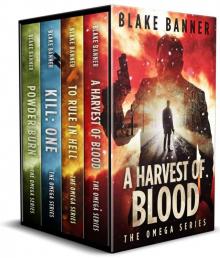 Omega Series Box Set 2
Omega Series Box Set 2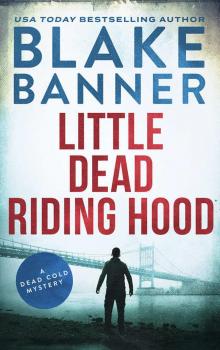 Little Dead Riding Hood: Dead Cold Mystery 13
Little Dead Riding Hood: Dead Cold Mystery 13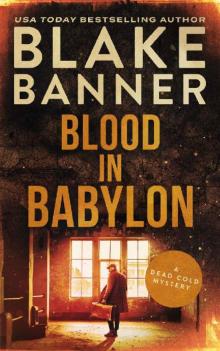 Blood in Babylon
Blood in Babylon Powder Burn
Powder Burn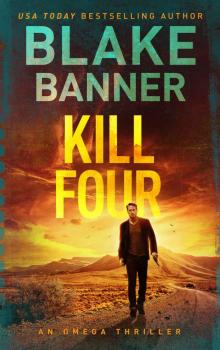 Kill Four
Kill Four Omega Series Box Set 3
Omega Series Box Set 3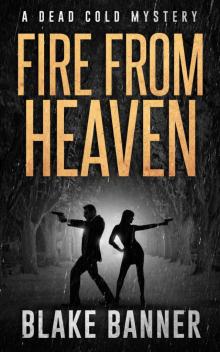 Fire From Heaven: Dead Cold Mystery 9
Fire From Heaven: Dead Cold Mystery 9 Kill - Two
Kill - Two Omega Series Box Set 1
Omega Series Box Set 1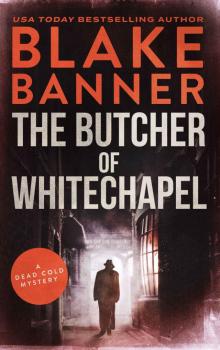 The Butcher of Whitechapel
The Butcher of Whitechapel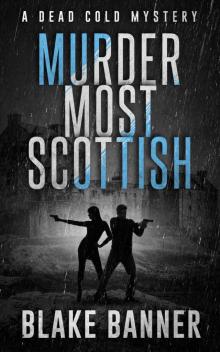 Murder Most Scottish
Murder Most Scottish Dead Cold Mystery Box Set 3
Dead Cold Mystery Box Set 3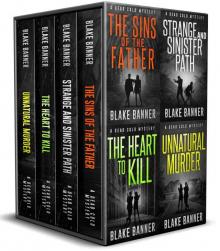 Dead Cold Mysteries Books 5-8
Dead Cold Mysteries Books 5-8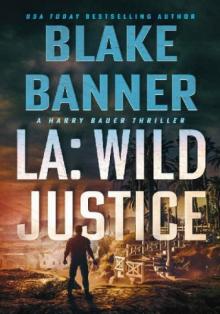 LA
LA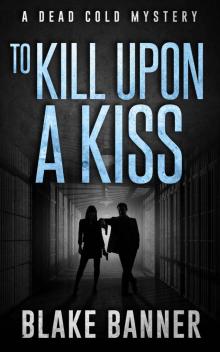 To Kill Upon A Kiss: Dead Cold Mystery 10
To Kill Upon A Kiss: Dead Cold Mystery 10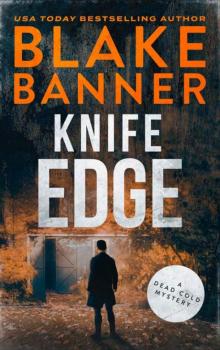 Knife Edge (A Dead Cold Mystery Book 27)
Knife Edge (A Dead Cold Mystery Book 27)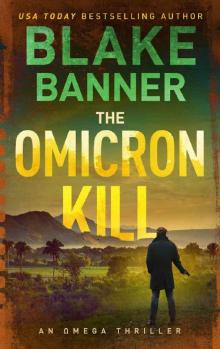 The Omicron Kill - An Omega Thriller (Omega Series Book 11)
The Omicron Kill - An Omega Thriller (Omega Series Book 11)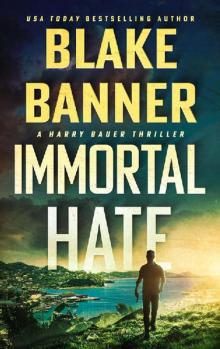 Immortal Hate (Harry Bauer Book 5)
Immortal Hate (Harry Bauer Book 5)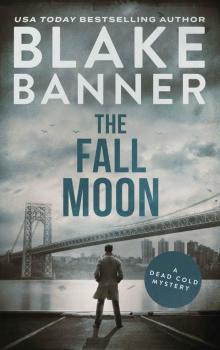 The Fall Moon
The Fall Moon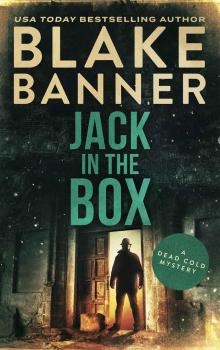 Jack in the Box
Jack in the Box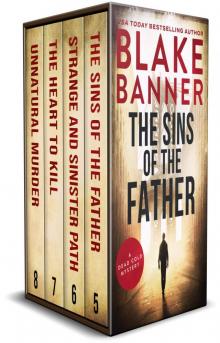 Dead Cold Mystery Box Set 2
Dead Cold Mystery Box Set 2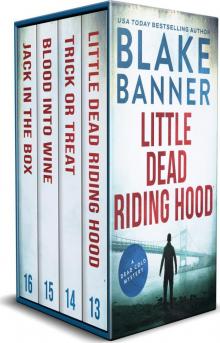 Dead Cold Mystery Box Set 4
Dead Cold Mystery Box Set 4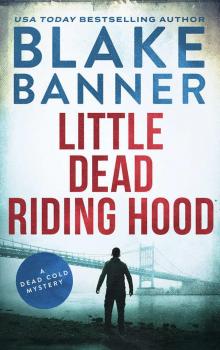 Little Dead Riding Hood
Little Dead Riding Hood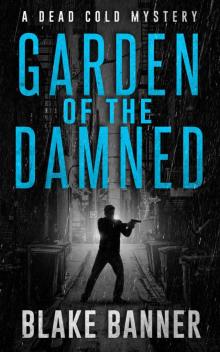 Gardened of the Damned
Gardened of the Damned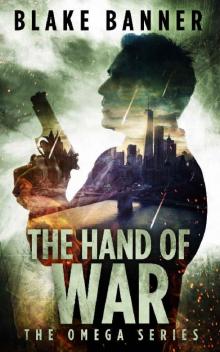 The Hand of War
The Hand of War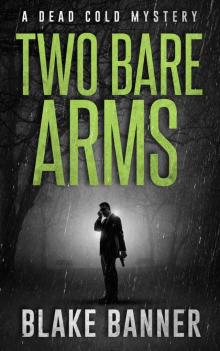 Two Bare Arms
Two Bare Arms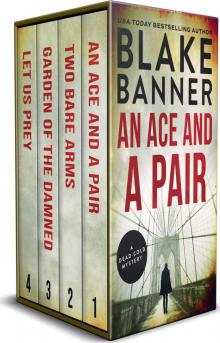 Dead Cold Mystery Box Set 1
Dead Cold Mystery Box Set 1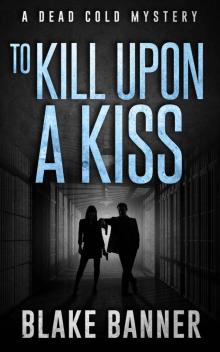 To Kill Upon A Kiss
To Kill Upon A Kiss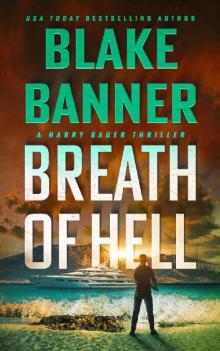 Breath of Hell (Harry Bauer Book 8)
Breath of Hell (Harry Bauer Book 8)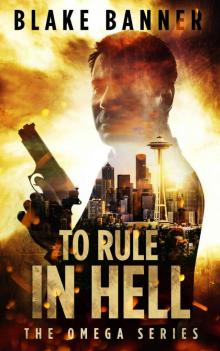 To Rule in Hell
To Rule in Hell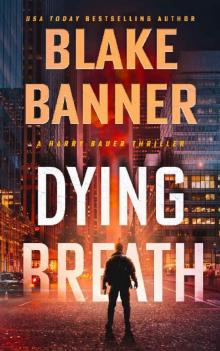 Dying Breath (Cobra Book 2)
Dying Breath (Cobra Book 2)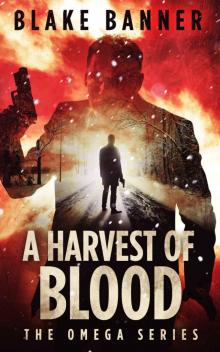 A Harvest of Blood - An Action Thriller Novel (Omega Series Book 5)
A Harvest of Blood - An Action Thriller Novel (Omega Series Book 5)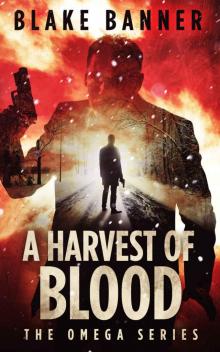 A Harvest of Blood - An Action Thriller Novel
A Harvest of Blood - An Action Thriller Novel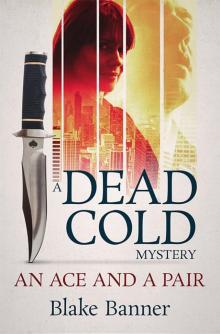 Ace and A Pair: A Dead Cold Mystery (Dead Cold Mysteries Book 1)
Ace and A Pair: A Dead Cold Mystery (Dead Cold Mysteries Book 1) Omega Series Box Set 3: Books 8-10
Omega Series Box Set 3: Books 8-10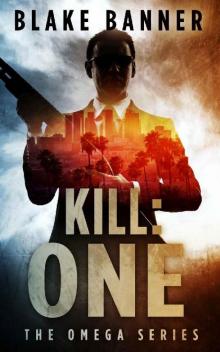 Kill One_An Action Thriller Novel
Kill One_An Action Thriller Novel The Storm
The Storm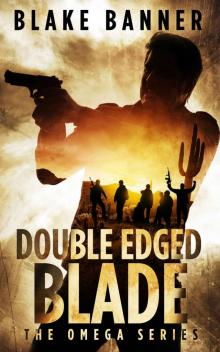 Double Edged Blade
Double Edged Blade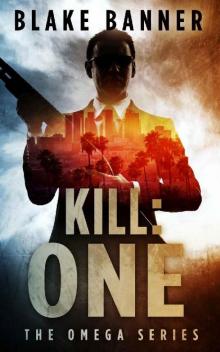 Kill: One - An Action Thriller Novel (Omega Series Book 7)
Kill: One - An Action Thriller Novel (Omega Series Book 7)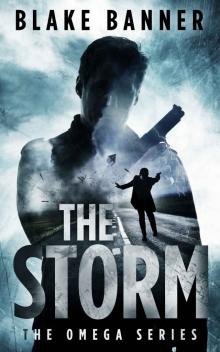 The Storm - An Action Thriller Novel (Omega Series Book 3)
The Storm - An Action Thriller Novel (Omega Series Book 3)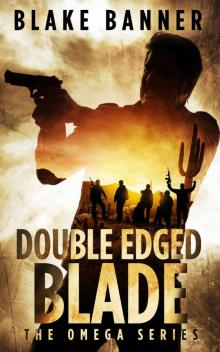 Double Edged Blade - An Action Thriller Novel (Omega Series Book 2)
Double Edged Blade - An Action Thriller Novel (Omega Series Book 2)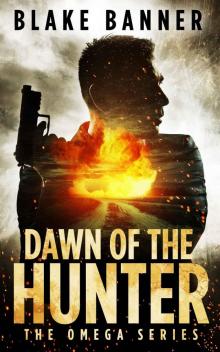 Dawn of the Hunter
Dawn of the Hunter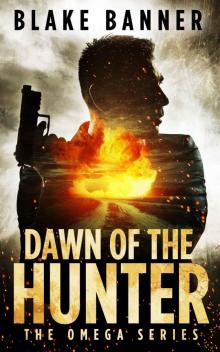 Dawn of the Hunter - An Action Thriller Novel (Omega Series Book 1)
Dawn of the Hunter - An Action Thriller Novel (Omega Series Book 1)